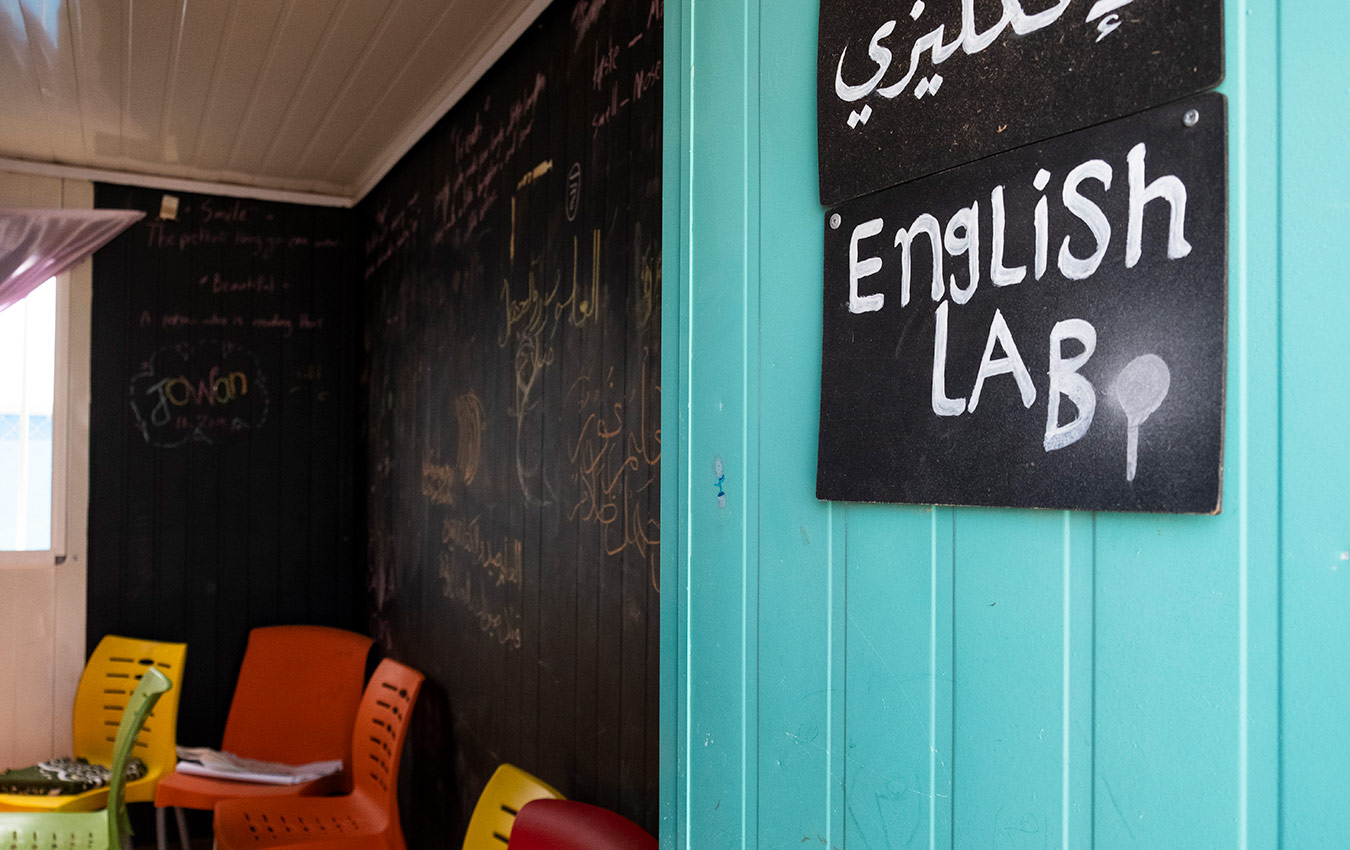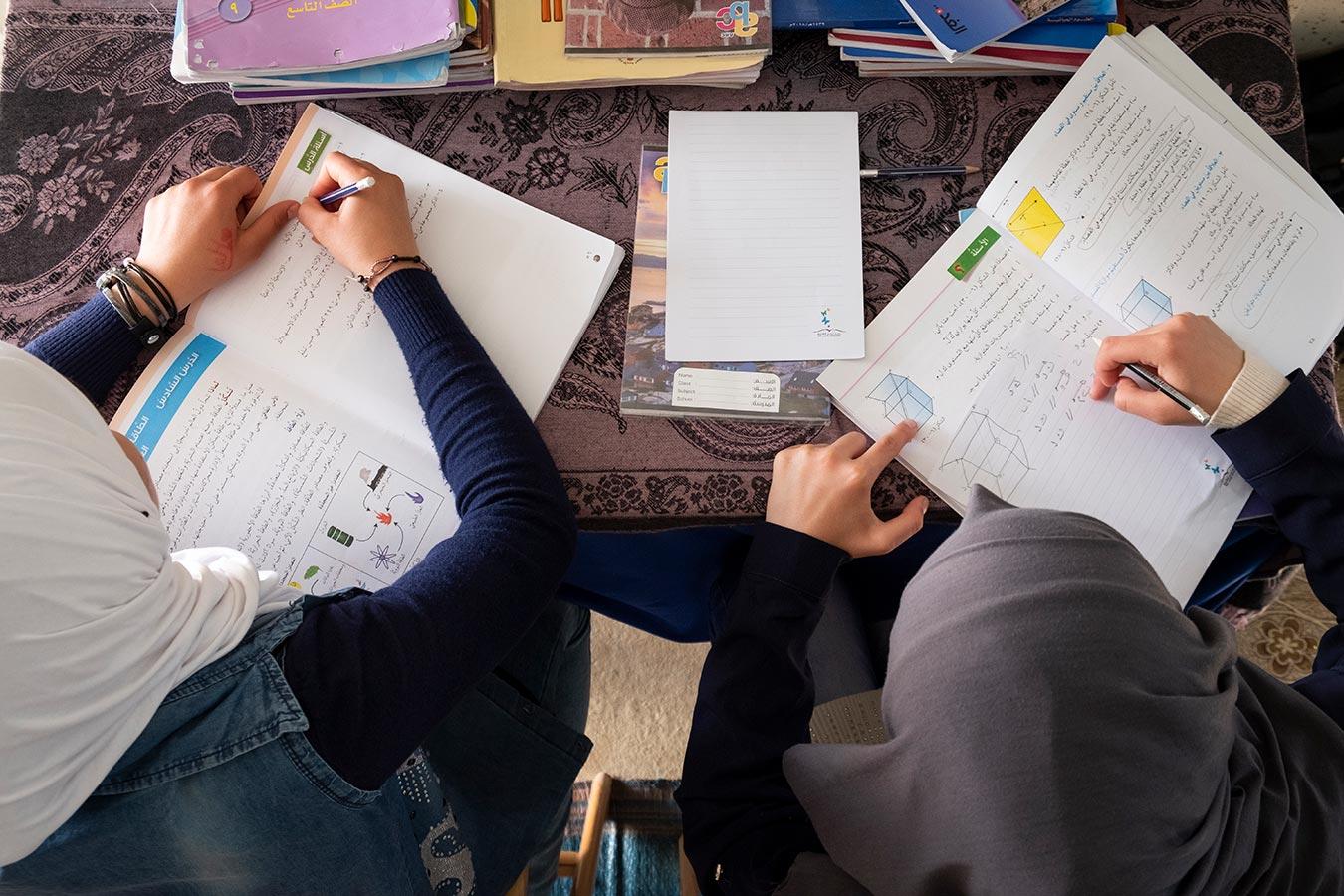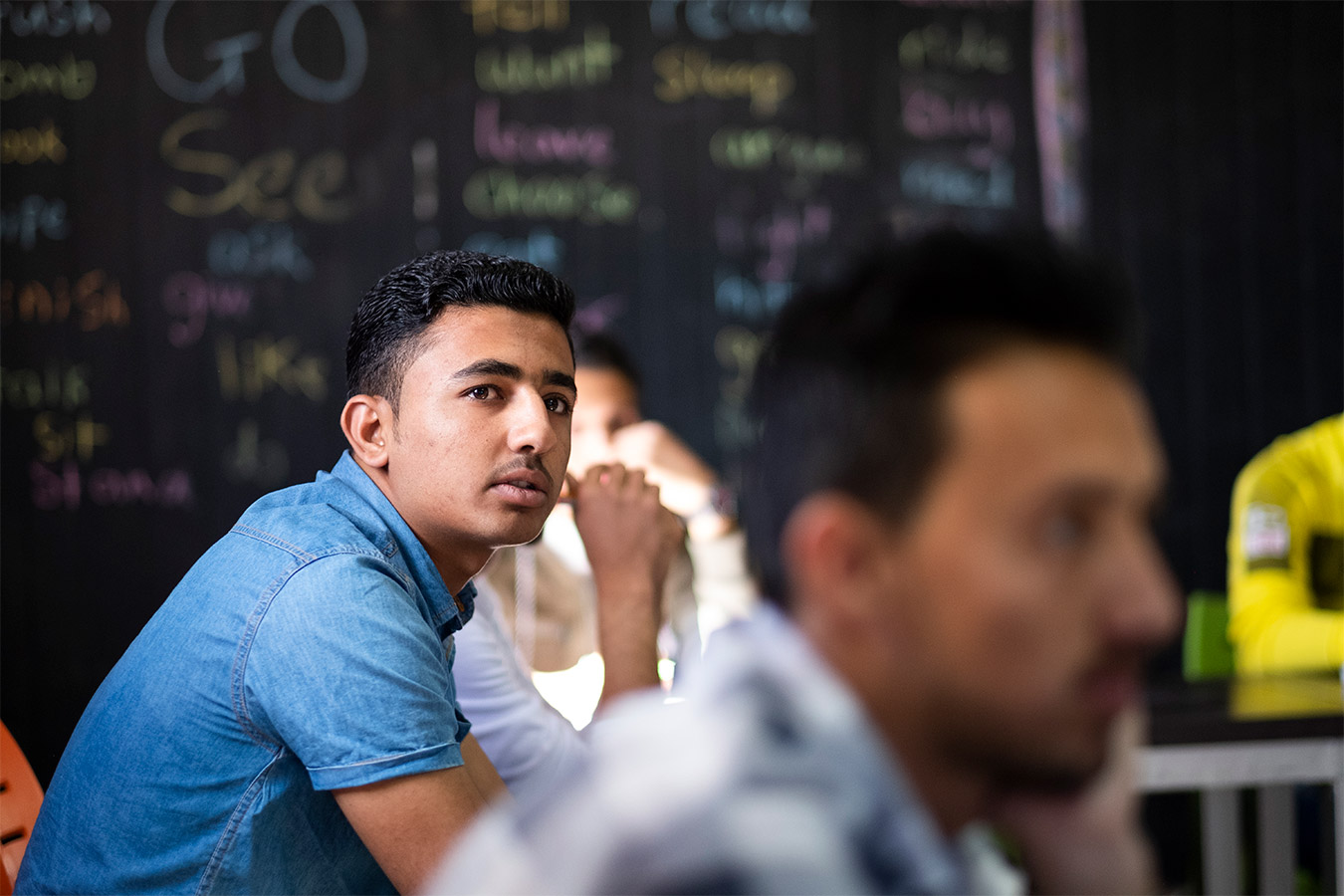The more than 70 million men, women, and children displaced from their homes living in refugee camps or crowded urban areas are at the greatest risk for contracting the virus. These families are already living under harsh, overcrowded conditions with limited access to healthcare. It’s in these fragile settings where the virus will spread rapidly, overwhelming not only their health systems but grinding all other services to a halt.
“For refugees, education is the most important service in their lives,” shares Relief International’s Head of Technical Education and Advisory Unit Dr. Ahmad Rabahah. “It provides them with the tools they need to rebuild Syria after the war, while also earning a living to support their families inside the camps.”
When emergencies like the coronavirus pandemic strike, life-saving measures must be prioritized in order to save lives. Other services like education are often the first to disappear and the last to be resumed. Schools have closed in London, New York, and now, in refugee camps across the globe as a means to contain the spread of the virus.
Relief International is one of the leading providers of non-formal education services and remedial classes for Syrian refugees living in Jordan’s two largest refugee camps. In Jordan’s Za’atari refugee camp, we support nearly 2,000 both in school and out-of-school students; to the northeast, we provide educational programs for 950 students in Azraq refugee camp.

All schools and education centers in Jordan’s largest refugee camps are now closed in order to slow the spread of the coronavirus.
© Elie Gardner / RI
The rapidly evolving outbreak is pushing our teams on the ground to plan for new responses in Jordan’s largest refugee camps – in order to ensure that our students do not have to put their education on hold as a result of this latest crisis. “When the coronavirus spreads to Jordan, refugees will be the hardest hit by this global crisis,” shares Dr. Ahmad. “We are already taking precautions in order to protect our students’ against the virus by offering online and virtual classes.”
Our staff and teachers inside the camps are filming videos and presentations in order to help our students keep their education on track. These videos are streamed live on Facebook every Sunday through Thursday, tackling issues related to creating a healthy environment for homeschooling. Our first live stream on March 24 reached more than 27,000 students and parents in Jordan.
We are also working non-stop to make all coursework and lessons available online for our students. This way, our students can easily access videos recorded by their teachers, daily assignments, and the resources they need to succeed. E-learning offers an effective and flexible way to meet students’ continued needs for education, especially during emergencies. Students can review materials on their own and work through complex challenges with their teachers and fellow students through online support groups.

Two sisters are now completing their coursework from home through e-learning lessons created by Relief International.
© Elie Gardner / RI
While these videos offer students new ways to stay on top of their course work, it is not without its challenges. This new method is not easy for teachers who are used to regular contact with their students through in-person classes. It is also a new experience for our students, many of whom are struggling to adapt to homeschooling.
Many of our students enrolled in our remedial education programs already struggle to grasp concepts that they learn in school – the direct result of being out of school for months, or even years, due to the war in Syria. They will need extra support to stay on top of their studies.
We are also filming short 30-second messages from our staff, teachers, and even our students to motivate others to keep on top of their studies during this difficult time. While classes will continue online, there is a higher-risk of students dropping out of school altogether as this crisis continues.
“We are very concerned about how this virus will disrupt our students’ education. If this pandemic drags on for months, it will have serious consequences for many of our students.”
Many of our students are now confined to their makeshift shelters, 19 feet by 9 feet, which can house a family of six. This crowded living situation is only made more difficult by the fact that social distancing measures now require that all normal routines, including homeschooling, childcare, and household chores must all take place under one roof.
Moreover, many of our students remain unable to access these virtual classes on e-learning platforms because they do not have access to laptops, or iPads, or smartphones. In addition, internet and electricity services are not reliable inside the camps. “We desperately need better internet access and devices for our students inside the camps, especially as this crisis continues,” shares Dr. Ahmad.
The truth is that the coronavirus will disproportionately affect the communities where we work. Many of our students have already been out of school for long periods of time as a result of the war in Syria. “It’s our job to ensure that their educations won’t be disrupted again by this latest crisis.”
